Search
Remove Ads
Advertisement
Summary 
Loading AI-generated summary based on World History Encyclopedia articles ...
Search Results
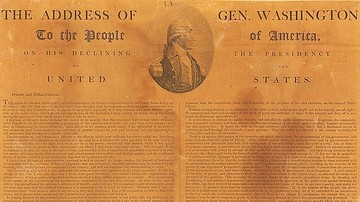
Article
George Washington's Farewell Address
George Washington's Farewell Address was published in a Philadelphia newspaper on 19 September 1796, near the end of his second and final presidential term. In it, Washington explains his reasoning for not seeking a third term and warns his...
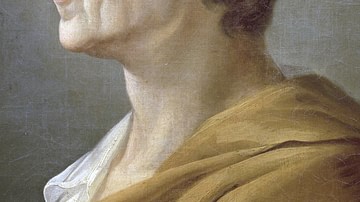
Definition
Montesquieu
Montesquieu (1689-1757) was a French philosopher whose ideas in works like The Spirit of the Laws helped launch the Enlightenment movement in Europe. His ideas on the separation of powers, that is, between the executive, legislative, and...
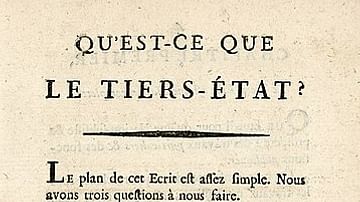
Article
Excerpts from What is the Third Estate
What is the Third Estate? was a pamphlet published by Abbè Emmanuel-Joseph Sieyès (1748-1836) in January 1789, months before the start of the French Revolution (1789-1799). The pamphlet concerns the place of the Third Estate (commoners) within...
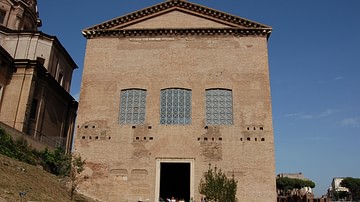
Definition
Roman Government
Western Civilization is forever indebted to the people of ancient Greece and Rome. Among the numerous contributions these societies made are in the fields of art, literature and philosophy; however, perhaps their greatest gift to future generations...
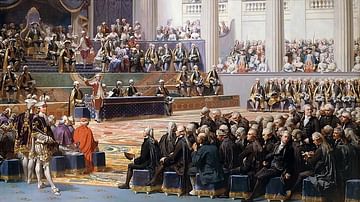
Definition
Estates-General of 1789
The Estates-General of 1789 was a meeting of the three estates of pre-revolutionary France: clergy, nobility, and commons. Summoned by King Louis XVI of France (r. 1774-1792) to deal with financial and societal crises, it ended with the Third...
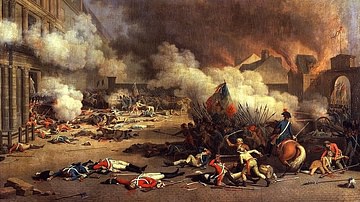
Definition
Storming of the Tuileries Palace
The Storming of the Tuileries Palace, also commonly known as the Insurrection of 10 August, was a defining moment in the French Revolution (1789-99) that saw the armed revolutionaries of Paris invade the residence of King Louis XVI of France...
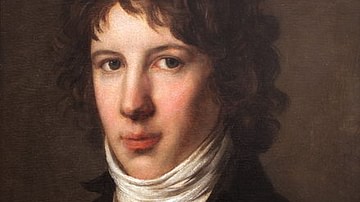
Definition
Louis-Antoine de Saint-Just
Louis-Antoine de Saint-Just (1767-1794) was a prominent figure of the French Revolution (1789-1799). After his election to the National Convention in September 1792, he led the push for the execution of King Louis XVI of France (r. 1774-1792...
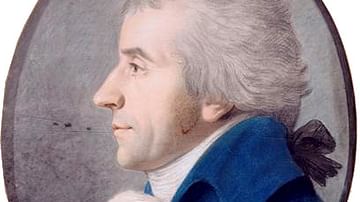
Definition
Jacques-Pierre Brissot
Jacques-Pierre Brissot de Warville (1754-1793) was a French journalist, abolitionist, and politician who played a prominent role in the French Revolution (1789-1799). A leader of the Girondins, a moderate political faction, Brissot was instrumental...
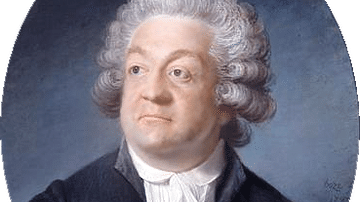
Definition
Honoré-Gabriel Riqueti, comte de Mirabeau
Honoré-Gabriel Riqueti, comte de Mirabeau (l. 1749-1791) was a French orator and nobleman who rose to prominence as a leader during the early stages of the French Revolution (1789-1799). From the disgraced and scandalized son of a distinguished...
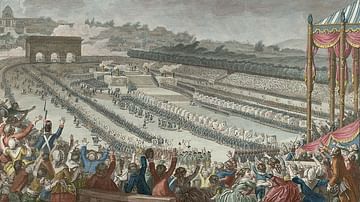
Definition
Festival of the Federation
The Festival of the Federation (Fête de la Fédération) was a celebration that occurred on the Champ de Mars outside Paris on 14 July 1790, the first anniversary of the Storming of the Bastille. With over 300,000 people in attendance, the...